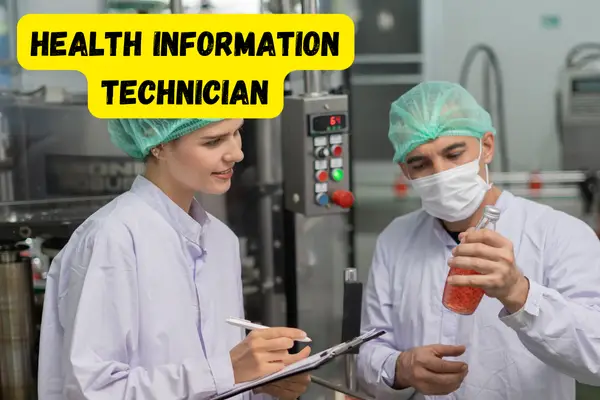Are you interested in a career that combines healthcare and technology? If so, becoming a Health Information Technician (HIT) might be the perfect fit for you. In this blog post, we’ll explore what a Health Information Technician does, the skills needed, and what you can expect from this growing field.
Table of Contents
ToggleWhat Does a Health Information Technician Do?
Health Information Technicians play a vital role in the healthcare system by managing patient data. Here are a few of the main duties they handle:
- Managing Medical Records: HITs collect, organize, and maintain patient health information, ensuring all data, such as medical histories and treatment plans, are accurate and up-to-date.
- Data Entry and Coding: They input data into electronic health record (EHR) systems and assign standardized codes to medical procedures and diagnoses using coding systems like ICD-10 and CPT.
- Ensuring Compliance and Security: HITs ensure that all patient information is handled according to healthcare regulations like HIPAA, maintaining confidentiality and security.
- Quality Control: Regular audits are conducted by HITs to ensure that health records are accurate and comply with regulations.
- Data Analysis: They analyze health data to support clinical and administrative decision-making, helping to improve patient care and streamline operations.
- Effective Communication: HITs work with healthcare providers to clarify information and communicate with insurance companies to manage reimbursement processes.
What Skills and Qualifications Do You Need?
To pursue a career as a Health Information Technician, you generally require:
- Education: An associate degree in health information technology or a related field is usually required, although some positions may need a bachelor’s degree.
- Certification: Many employers prefer candidates who are certified, such as a Registered Health Information Technician (RHIT) or Certified Coding Specialist (CCS).
- Technical Skills: Proficiency with EHR software, medical coding systems, and data management tools is essential.
- Attention to Detail: Accuracy is crucial in this role to ensure data integrity.
- Knowledge of Regulations : Understanding healthcare laws and regulations, particularly those related to patient privacy, is important.
- Communication Skills: Effective communication is needed to interact with healthcare professionals, patients, and insurance companies.
What Can You Expect from This Career?
The demand for Health Information Technicians is growing, thanks to the increasing adoption of electronic health records and the need for accurate health data management. You can find job opportunities in hospitals, clinics, physician offices, insurance companies, and government agencies.
Work Environment
Most Health Information Technicians work in office settings within healthcare facilities. Depending on the employer, some may have the option to work remotely.
Salary
Salaries for Health Information Technicians vary based on location, education, experience, and certification. On average, they can expect to earn between $35,000 and $55,000 annually. Those with more experience or specialized roles can earn higher salaries.
Continuing Education and Career Advancement
Continuing education is important in this field to keep up with changes in healthcare regulations, medical coding updates, and advancements in technology. Many certifications require ongoing education to stay current.
With experience and additional education or certifications, Health Information Technicians can advance to roles like Health Information Manager, Clinical Data Analyst, or Health Informatics Specialist. These advanced roles often involve more complex data analysis and management responsibilities.
Final Thoughts
A career as a Health Information Technician offers a unique blend of healthcare and technology. It’s a rewarding path for those who are detail-oriented and enjoy working with data to contribute to the efficient delivery of healthcare services. If this sounds like you, consider exploring this growing field!
Author
-

My name is Pooja Yadav. I have over 5 years of experience in the tech and tech education industry. I specialize in digital marketing, social media optimization, and helping others learn about technology. I'm passionate about staying up-to-date with the latest trends and sharing my knowledge with others.
View all posts


Very interesting details you have noted, regards for putting
up.Money from blog
Hey people!!!!!
Good mood and good luck to everyone!!!!!